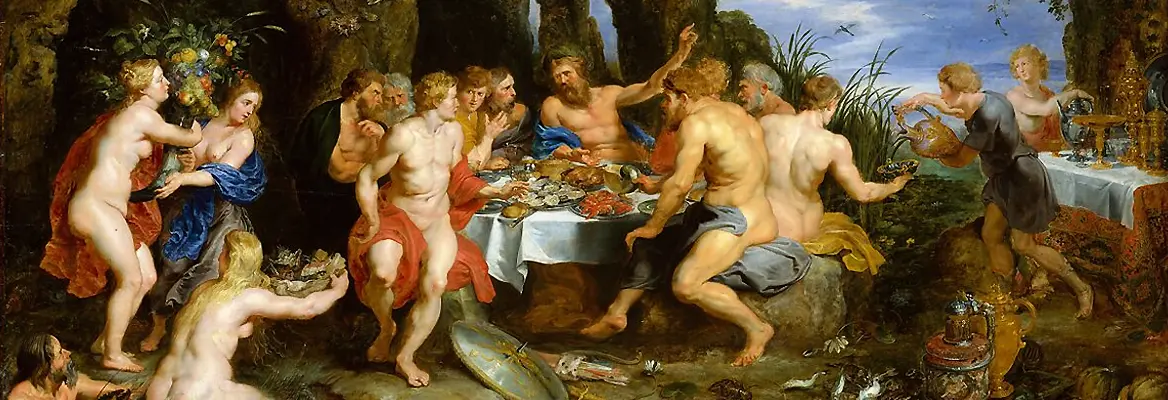The Epicureans would do Christmas very differently than most people assume. Sure, they were hedonists, they were all for pleasure. But for them that didn’t involve lavish meals and copious amounts of drink. They weren’t averse to fine dining if it happened to come their way, but they were aware that making one’s happiness depend on luxuries is a recipe for misery. Instead, they emphasized the psychological pleasure of tranquility and the pleasures of friendship. They would be at home with Christmas gatherings and the practice of giving thoughtful gifts to loved ones. They could even stretch to celebrating Jesus Christ as a God, if that meant looking at him as a role model to aspire to, not as a source of salvation and guarantee of an afterlife, writes Tim O’Keefe.
Epicureans are hedonists, believing that pleasure is the goal of life, and because of this, they were often reviled in the ancient world as undermining morality. In modern times, “Epicurean” has come to mean somebody dedicated to dainty and refined bodily pleasures.
The Epicureans also believed that the gods take no interest in human affairs and that there is no afterlife - the Hebrew word for heretic, apikoros, is derived from “Epicurean.” So it might seem that an Epicurean would want nothing at all to do with the religious holiday of Christmas, which celebrates God’s birth as a human, in order to save us from our sins. Of course, many people celebrate Christmas as a secular holiday, and perhaps, it might seem, an Epicurean would at least be into getting some really nice presents and eating a fancy meal. But the Epicureans have been misunderstood in both ancient and modern times, and their attitude towards Christmas would be much more complicated than this.
The pleasures of tranquility
Let’s start with Christmas as a secular holiday—a time to exchange presents and gather together for a celebratory meal. If you’re a hedonist, wouldn’t you give a full-throated endorsement to the pleasures of receiving cool gadgets and eating fancy food? But a true Epicurean would protest that this kind of attitude is based on a confusion of what truly makes a life pleasant.
Especially central to the Epicureans for achieving happiness is mental static pleasure—the state of being without fear, anxiety, regret, and all other forms of mental turmoil.
According to the Epicureans, there are both bodily and mental pleasures and pains. (Think of slurping down a delicious bowl of Tom Yum soup or getting a quick kick to the shins, versus joyfully recalling good times with your friends or anticipating a wisdom tooth extraction.) People often overemphasize bodily pleasures and pains, whereas mental pleasures and pains have a larger impact on whether we’re happy. Furthermore, people often think of pleasure as always involving some active titillation of the senses, like the delightful taste of the Tom Yum soup. But, say the Epicureans, we can also take pleasure in the absence of pain. When I’m hungry, that’s painful, and the process of satiating my hunger as I slurp down the soup is pleasant. But when I’m full, and no longer in want or need, that is also pleasant. The Epicureans call such pleasures “static” pleasures, and even claim that being free from all pain is the limit of pleasure.





















Join the conversation